This article was co-authored by Peter Gardner, MD and by wikiHow staff writer, Madeleine Criglow. Peter W. Gardner, MD is a board certified physician who has practiced Gastroenterology and Hepatology for over 30 years. He specializes in diseases of the digestive system and liver. Dr. Gardner earned his Bachelor’s degree from the University of North Carolina and attended Georgetown Medical School. He completed his residency in Internal Medicine and then his fellowship in Gastroenterology at the University of Connecticut. He is a previous Chief of Gastroenterology at Stamford Hospital and remains on the staff. He is also on the staff of Greenwich Hospital and New York (Columbia) Presbyterian Hospital. Dr. Gardner is an Approved Consultant in Internal Medicine and Gastroenterology with the American Board of Internal Medicine.
There are 20 references cited in this article, which can be found at the bottom of the page.
wikiHow marks an article as reader-approved once it receives enough positive feedback. In this case, 100% of readers who voted found the article helpful, earning it our reader-approved status.
This article has been viewed 1,049,168 times.
Stomach bloating is a super common but uncomfortable ailment. Thankfully, there's a lot you can do to reduce or even eliminate bloating. Even simple things like changing up your diet and making a few key lifestyle changes can really help. Read on for some advice on curing stomach bloating for good.
Steps
Expert Q&A
-
QuestionHow often does a person replenish good bacteria?
 Chris M. Matsko, MDDr. Chris M. Matsko is a retired physician based in Pittsburgh, Pennsylvania. With over 25 years of medical research experience, Dr. Matsko was awarded the Pittsburgh Cornell University Leadership Award for Excellence. He holds a BS in Nutritional Science from Cornell University and an MD from the Temple University School of Medicine in 2007. Dr. Matsko earned a Research Writing Certification from the American Medical Writers Association (AMWA) in 2016 and a Medical Writing & Editing Certification from the University of Chicago in 2017.
Chris M. Matsko, MDDr. Chris M. Matsko is a retired physician based in Pittsburgh, Pennsylvania. With over 25 years of medical research experience, Dr. Matsko was awarded the Pittsburgh Cornell University Leadership Award for Excellence. He holds a BS in Nutritional Science from Cornell University and an MD from the Temple University School of Medicine in 2007. Dr. Matsko earned a Research Writing Certification from the American Medical Writers Association (AMWA) in 2016 and a Medical Writing & Editing Certification from the University of Chicago in 2017.
Family Medicine Physician Commensal bacteria, as they are called, are cohabitants of the GI tract and are constantly being replenished.
Commensal bacteria, as they are called, are cohabitants of the GI tract and are constantly being replenished.
References
- ↑ https://www.nccih.nih.gov/health/probiotics-what-you-need-to-know
- ↑ https://my.clevelandclinic.org/health/articles/14598-probiotics
- ↑ https://health.clevelandclinic.org/is-it-safe-to-take-charcoal-pills-for-gas-and-bloating/
- ↑ http://www.mayoclinic.org/diseases-conditions/gas-and-gas-pains/basics/treatment/con-20019271?
- ↑ http://www.mayoclinic.org/diseases-conditions/gas-and-gas-pains/basics/treatment/con-20019271?
- ↑ http://www.mayoclinic.org/diseases-conditions/gas-and-gas-pains/basics/treatment/con-20019271?
- ↑ https://medlineplus.gov/druginfo/meds/a682683.html
- ↑ http://www.mayoclinic.org/diseases-conditions/gas-and-gas-pains/basics/treatment/con-20019271?
- ↑ https://health.clevelandclinic.org/digestive-enzymes-101-why-theyre-important/
- ↑ https://www.mayoclinic.org/diseases-conditions/gas-and-gas-pains/diagnosis-treatment/drc-20372714
- ↑ http://www.mayoclinic.org/diseases-conditions/gas-and-gas-pains/basics/treatment/con-20019271?
- ↑ http://www.mayoclinic.org/diseases-conditions/gas-and-gas-pains/in-depth/gas-and-gas-pains/art-20044739?pg=2
- ↑ Lyssandra Guerra. Certified Nutrition & Wellness Consultant. Expert Interview. 25 March 2020.
- ↑ http://www.mayoclinic.org/diseases-conditions/gas-and-gas-pains/basics/causes/con-20019271
- ↑ http://www.mayoclinic.org/diseases-conditions/gas-and-gas-pains/basics/treatment/con-20019271
- ↑ Peter Gardner, MD. Board Certified Gastroenterologist. Expert Interview. 25 August 2020.
- ↑ http://www.mayoclinic.org/diseases-conditions/gas-and-gas-pains/in-depth/gas-and-gas-pains/art-20044739?pg=2
- ↑ http://www.mayoclinic.org/diseases-conditions/gas-and-gas-pains/basics/causes/con-20019271
- ↑ Peter Gardner, MD. Board Certified Gastroenterologist. Expert Interview. 25 August 2020.
- ↑ http://www.mayoclinic.org/diseases-conditions/gas-and-gas-pains/basics/treatment/con-20019271
- ↑ https://health.clevelandclinic.org/feel-bloated-5-odd-reasons-stomach-pain/
- ↑ Peter Gardner, MD. Board Certified Gastroenterologist. Expert Interview. 25 August 2020.
- ↑ http://www.mayoclinic.org/diseases-conditions/gas-and-gas-pains/in-depth/gas-and-gas-pains/art-20044739
- ↑ https://newsnetwork.mayoclinic.org/discussion/home-remedies-gas-belching-and-bloating/
- ↑ http://www.mayoclinic.org/healthy-lifestyle/fitness/basics/fitness-basics/hlv-20049447
- ↑ https://www.health.harvard.edu/newsletter_article/stress-and-the-sensitive-gut
- ↑ http://www.mayoclinic.org/healthy-lifestyle/stress-management/in-depth/stress-management/art-20044289?pg=2
- ↑ https://www.health.harvard.edu/newsletter_article/stress-and-the-sensitive-gut
- ↑ http://www.mayoclinic.org/diseases-conditions/gas-and-gas-pains/basics/symptoms/con-20019271
About This Article
To cure stomach bloating, try to avoid gassy fruits and vegetables like cabbage, broccoli, beans, and onions. You can also try eating fermented dairy products like yogurt and kefir, which contain bacteria your body needs to digest food. Additionally, consider doing some physical exercise, such as jogging, biking, or swimming, to help your body digest food faster. If you regularly drink fizzy drinks, try cutting down, since this will reduce the amount of gas in your gut. For more tips from our Medical co-author, including how to improve your digestion by managing your stress levels, read on!
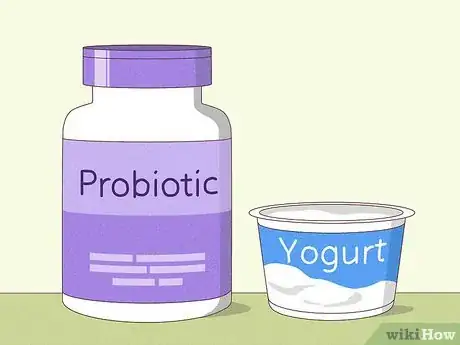
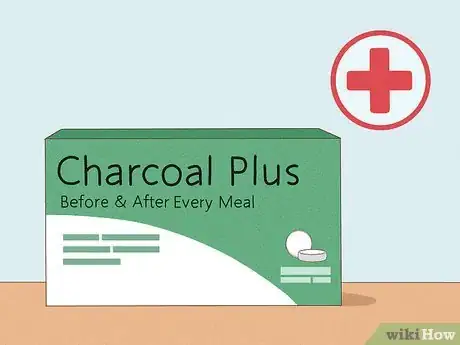
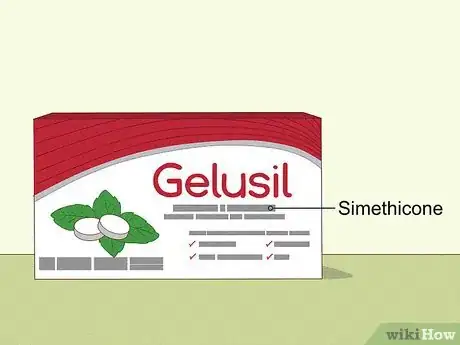
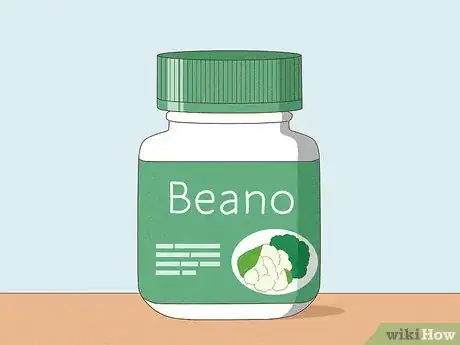
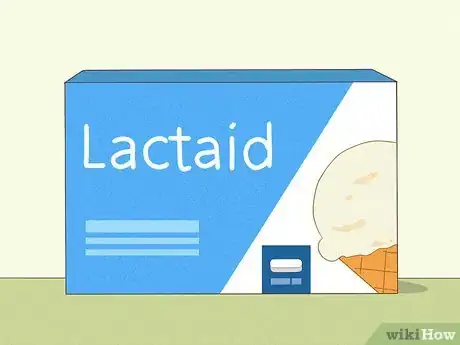
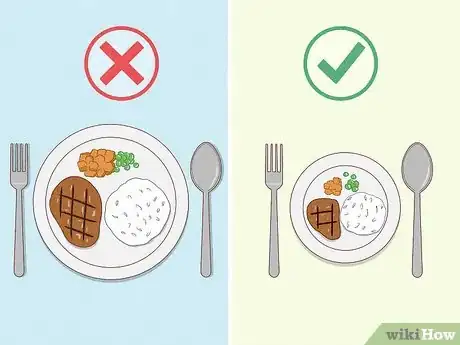

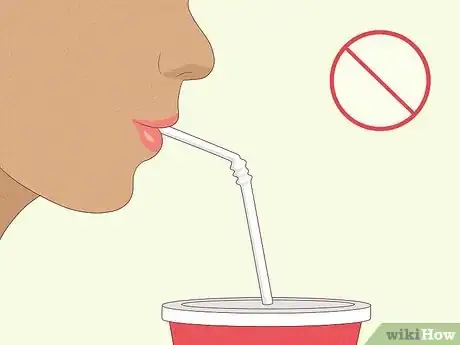
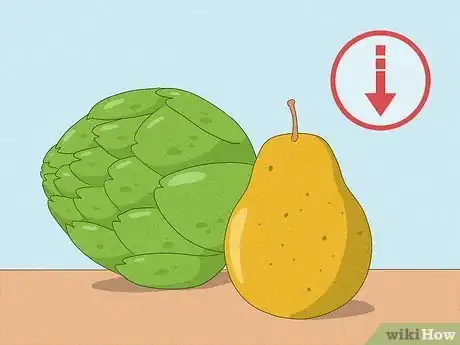
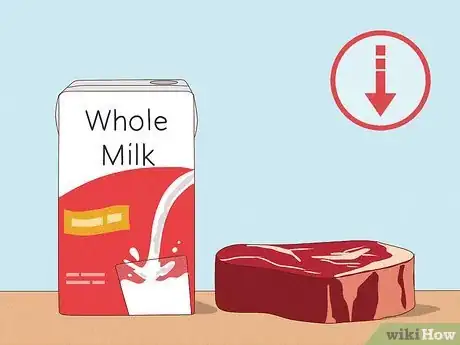

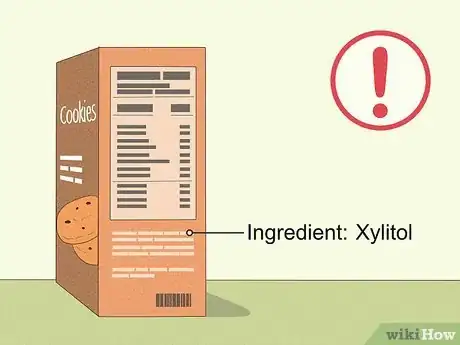
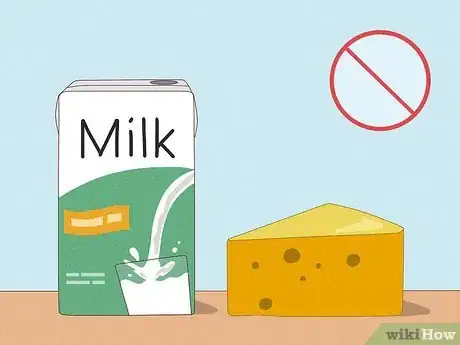
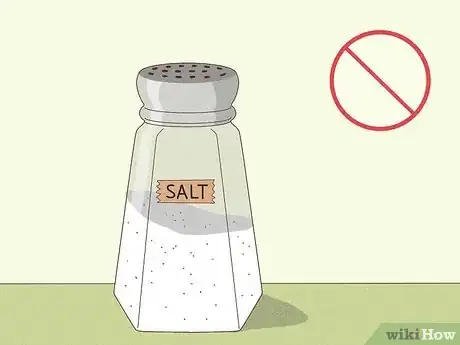
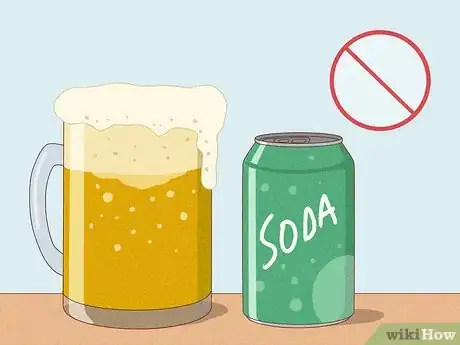
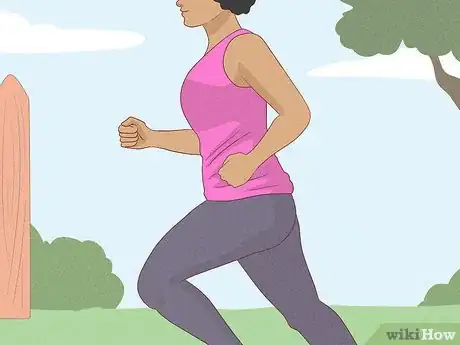

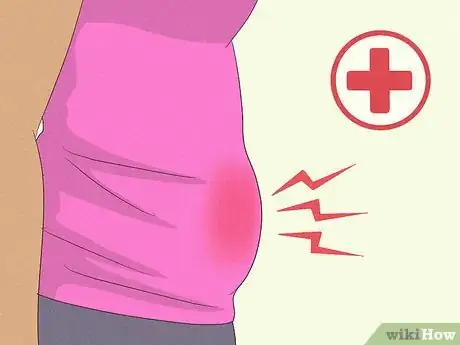
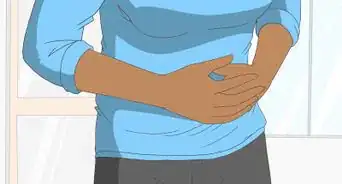


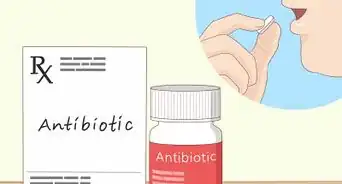

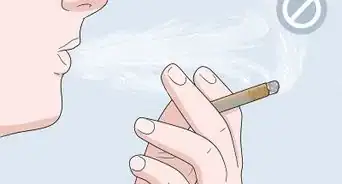
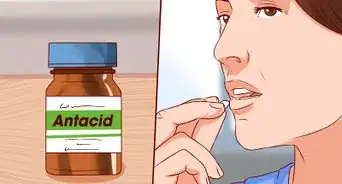


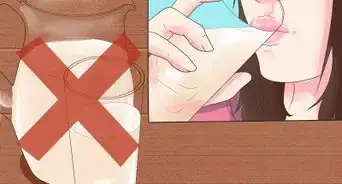
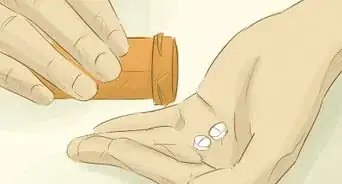














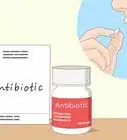



































Medical Disclaimer
The content of this article is not intended to be a substitute for professional medical advice, examination, diagnosis, or treatment. You should always contact your doctor or other qualified healthcare professional before starting, changing, or stopping any kind of health treatment.
Read More...